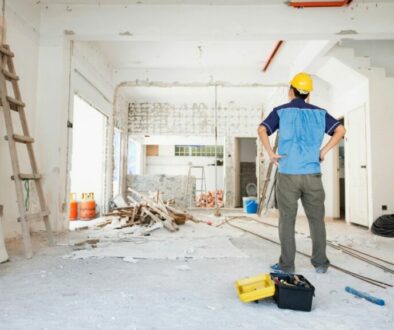Construction And Skilled Trades Exam
If you aspire to work in the construction and skilled trades industry, then taking the Construction and Skilled Trades Exam is the first step to building a successful career. This exam is designed to evaluate your knowledge and proficiency in key areas related to the industry. In this article, we will discuss everything you need to know about the exam, from its purpose and eligibility criteria to tips for success and using your results for professional advancement.
Understanding the Construction and Skilled Trades Exam
Purpose of the Exam
The Construction and Skilled Trades Exam is an essential tool in evaluating your comprehension of key concepts and skills related to the construction and skilled trades industry. This exam is designed to assess your knowledge in areas such as construction mathematics, blueprint reading and interpretation, building materials and methods, and safety regulations and procedures. The purpose of this exam is to ensure that you have a solid foundation of knowledge before beginning your career in the industry.
By taking this exam, you will be able to demonstrate your understanding of the fundamental principles of the construction and skilled trades industry. This will help you to stand out to potential employers and increase your chances of securing a job in this exciting field.
Eligibility Criteria
The Construction and Skilled Trades Exam is open to a wide range of individuals, regardless of their educational background or work experience. There are no specific prerequisites for taking this exam, making it accessible to anyone who is interested in pursuing a career in the construction and skilled trades industry.
However, some employers or organizations may require this exam as part of their hiring or training process. It is important to check with them to determine if this exam is required and what the eligibility criteria are.
Exam Format and Structure
The Construction and Skilled Trades Exam is a computer-based test consisting of multiple-choice questions. The exam is typically divided into sections, with each section evaluating your knowledge and proficiency in a specific area related to the industry. You will have a specified amount of time to complete each section.
The exam questions are designed to test your understanding of the key concepts and skills related to the construction and skilled trades industry. You will be asked to demonstrate your knowledge of construction mathematics, blueprint reading and interpretation, building materials and methods, and safety regulations and procedures. The questions will be presented in a clear and concise format, making it easy for you to understand and answer them.
By taking the Construction and Skilled Trades Exam, you will be able to demonstrate your proficiency in the key areas of the construction and skilled trades industry. This will help you to stand out to potential employers and increase your chances of securing a job in this exciting field.
Preparing for the Exam
If you are planning to take the Construction and Skilled Trades Exam, it is important to prepare yourself thoroughly to increase your chances of success. This exam is designed to test your knowledge and skills in various areas related to construction and skilled trades, so it is essential to be well-prepared.
Study Materials and Resources
There are many study materials and resources available to help you prepare for the Construction and Skilled Trades Exam. One of the first things you should do is review the exam blueprint, which provides a detailed outline of the areas covered in the exam. This will help you to focus your studying efforts and ensure that you are covering all the necessary topics.
In addition to the exam blueprint, there are many other resources that you can use to prepare for the exam. Study guides, practice exams, and online courses are all great options that can help you to familiarize yourself with the exam format and structure, as well as provide additional practice questions to test your knowledge.
Tips and Strategies for Success
While having access to study materials and resources is important, it is also essential to have a solid plan in place for how you will approach your studying. Here are some tips and strategies that can help you to prepare for and succeed on the Construction and Skilled Trades Exam:
- Start studying early: Don’t wait until the last minute to begin studying. Give yourself plenty of time to cover all the necessary material.
- Create a study schedule: Develop a study schedule that works for you and stick to it. This will help you to stay on track and ensure that you are making progress.
- Take practice exams: Taking practice exams can help you to familiarize yourself with the exam format and timing, as well as identify areas where you may need additional study.
- Focus on your weaknesses: Spend more time studying the areas where you are weakest. This will help you to improve your overall knowledge and increase your chances of success.
- Use memory aids: Mnemonic devices and other memory aids can be helpful for remembering key concepts and information.
- Take breaks: Taking breaks and engaging in stress-reducing activities can help you to avoid burnout and stay motivated.
Time Management Techniques
Effective time management is essential for success on the Construction and Skilled Trades Exam. Here are some time management techniques that can help you to stay on track:
- Divide your study time: Break your study time into manageable chunks, such as 30-minute or 60-minute sessions. This can help you to stay focused and avoid getting overwhelmed.
- Use a timer: Use a timer to keep yourself on schedule and ensure that you are spending the appropriate amount of time on each topic.
- Eliminate distractions: Eliminate distractions, such as social media or TV, during your study sessions. This will help you to stay focused and make the most of your time.
- Focus on your most challenging topics: Study your most challenging topics during your peak study times, when you are most alert and focused.
- Take breaks: Taking breaks to recharge and avoid burnout is important for effective time management. Make sure to take breaks regularly and engage in activities that help you to relax and recharge.
By following these tips and strategies, you can increase your chances of success on the Construction and Skilled Trades Exam and feel confident in your knowledge and abilities.
Key Areas of Knowledge
Construction Mathematics
Construction mathematics is a critical area of knowledge for anyone working in the construction and skilled trades industry. This includes understanding basic math concepts such as measurement, fractions, decimals, percentages, and algebraic equations. For example, understanding how to calculate the area of a room or the volume of concrete needed for a foundation is essential for any construction project. Additionally, being able to convert measurements from one unit to another, such as from feet to meters, is crucial for accurate and precise construction work.
Blueprint Reading and Interpretation
Blueprint reading and interpretation is another important area of knowledge for those working in the construction and skilled trades industry. This includes understanding how to read and interpret blueprints, schematics, and other technical drawings. For instance, being able to identify different symbols and markings on a blueprint can help a construction worker to understand the layout of a building and the location of important features such as plumbing and electrical systems. Additionally, understanding how to use a scale ruler to measure distances on a blueprint is crucial for accurate construction work.
Building Materials and Methods
Understanding building materials and methods is essential for working in the construction and skilled trades industry. This includes knowledge of different materials, such as wood, steel, and concrete, as well as the techniques used to assemble and construct buildings. For example, understanding the properties of different types of wood can help a carpenter to select the best wood for a particular project. Additionally, knowing how to use tools such as saws, drills, and hammers is crucial for constructing buildings safely and efficiently.
Safety Regulations and Procedures
Safety is of utmost importance in the construction and skilled trades industry. Understanding safety regulations and procedures, such as those outlined by OSHA, is critical for ensuring a safe and healthy work environment. For instance, understanding how to properly use personal protective equipment, such as hard hats and safety glasses, can help prevent serious injuries on the job. Additionally, knowing how to identify and mitigate potential hazards on a job site, such as electrical hazards or falls from heights, is crucial for maintaining a safe work environment.
Taking the Exam
Preparing for the Construction and Skilled Trades Exam can be a daunting task, but with the right mindset and preparation, you can succeed. Here are some additional details to help you feel more confident on exam day.
Registration Process
The registration process for the Construction and Skilled Trades Exam can vary depending on the organization or employer administering the exam. Some may require you to fill out an application and pay a fee, while others may have a more streamlined process. It’s important to check with your employer or organization for more specific information on the registration process.
Additionally, it’s worth noting that some employers may offer study materials or training sessions to help you prepare for the exam. If this is the case, take advantage of these resources to give yourself the best chance of success.
What to Expect on Exam Day
On exam day, you can expect to take the test on a computer in a designated testing center. The exam will likely be timed, with a specified amount of time for each section. It’s important to arrive at the testing center early to ensure that you have enough time to check in and get settled before the exam begins.
Once you begin the exam, it’s important to read each question carefully and take your time to ensure that you’re answering to the best of your ability. Don’t rush through the exam, but also don’t spend too much time on any one question. If you’re unsure of an answer, make note of it and come back to it later.
Dealing with Test Anxiety
Test anxiety is common, and it can be particularly challenging for high-stakes exams like the Construction and Skilled Trades Exam. Here are some additional tips for dealing with test anxiety:
- Practice relaxation techniques, such as deep breathing or visualization, in the days leading up to the exam
- Get enough sleep the night before the exam to ensure that you’re well-rested and alert
- Eat a healthy meal before the exam to fuel your brain and give you energy
- Avoid caffeine or other stimulants that can exacerbate anxiety
- Stay positive and remind yourself of your strengths and abilities. You’ve prepared for this exam and you’re capable of success.
Remember, the Construction and Skilled Trades Exam is just one step in your career journey. Whether you pass or not, there are always opportunities to learn and grow. Stay focused, stay positive, and give it your best effort.
Exam Scoring and Results
Understanding Your Score
The Construction and Skilled Trades Exam is an important assessment that measures your knowledge and proficiency in key areas related to the industry. This exam is typically scored on a scale of 1 to 100, with the passing score varying depending on the organization or employer administering the exam. It is important to check with your employer or organization to determine the passing score for the exam.
Once you have taken the exam and received your score, it is important to understand what your score means. Your score will indicate how well you performed on the exam, with a higher score indicating a better performance. This score can be used to demonstrate your knowledge and proficiency to potential employers or organizations.
Retaking the Exam
If you do not pass the Construction and Skilled Trades Exam on your first attempt, it is not the end of the road. You may be able to retake the exam after a specified period of time. Check with your employer or organization for more specific information on retaking the exam.
It is important to remember that failing the exam does not mean that you are not knowledgeable or skilled in your field. It simply means that you may need to brush up on certain areas or take additional training before retaking the exam.
Using Your Results for Career Advancement
Passing the Construction and Skilled Trades Exam can open up doors for career advancement. This exam can demonstrate your knowledge and proficiency in key areas related to the industry, making you a valuable asset to potential employers or organizations.
With a passing score on the exam, you may be eligible for promotions or higher-paying positions. Additionally, some employers or organizations may require this exam as part of their training or certification process, so passing the exam can be a crucial step in advancing your career.
It is important to keep in mind that the Construction and Skilled Trades Exam is just one of many factors that employers or organizations may consider when making decisions about your career advancement. Other factors, such as work experience and job performance, may also play a role.
Overall, the Construction and Skilled Trades Exam is an important tool for demonstrating your knowledge and proficiency in key areas related to the industry. By understanding your score, retaking the exam if necessary, and using your results for career advancement, you can position yourself for success in the field of construction and skilled trades.
Frequently Asked Questions
If you’re interested in pursuing a career in construction or skilled trades, you may have questions about the Construction and Skilled Trades Exam. Here are some frequently asked questions to help you better understand the exam.
How often is the exam offered?
The frequency of the Construction and Skilled Trades Exam varies depending on the organization or employer administering the exam. Some may offer the exam on a regular basis, such as monthly or quarterly, while others may only offer it once or twice a year. It’s important to check with your employer or organization for more specific information on when the exam is offered.
Are there any prerequisites for taking the exam?
There are no specific prerequisites for taking the Construction and Skilled Trades Exam. However, some employers or organizations may require this exam as part of their hiring or training process. It’s important to check with your employer or organization to determine if the exam is required for your position.
Even if the exam isn’t required, it’s still a good idea to consider taking it. The Construction and Skilled Trades Exam can help you assess your knowledge and skills in your chosen field, and may help you identify areas where you need to improve.
What is the passing score for the exam?
The passing score for the Construction and Skilled Trades Exam varies depending on the organization or employer administering the exam. Some may require a passing score of 70%, while others may require a higher or lower score. It’s important to check with your employer or organization to determine the passing score for the exam.
Keep in mind that the passing score is just one factor to consider. Even if you pass the exam, there may be other requirements you need to meet to qualify for a job or promotion. These may include completing a certain number of training hours, obtaining a specific certification, or demonstrating proficiency in certain skills.
Overall, the Construction and Skilled Trades Exam can be a valuable tool for anyone interested in pursuing a career in construction or skilled trades. By taking the exam and working to improve your skills, you can increase your chances of success in this exciting and rewarding field.
Importance of the Construction and Skilled Trades Exam
The Construction and Skilled Trades Exam is an important step for anyone looking to pursue a career in the construction and skilled trades industry. It provides a foundation of knowledge in key areas related to the industry and can be beneficial for career advancement and professional development.
Continuing Education and Professional Development
After passing the Construction and Skilled Trades Exam, it is important to continue your education and professional development. This can include attending training sessions, pursuing certifications, and staying up-to-date on industry changes and advancements.




